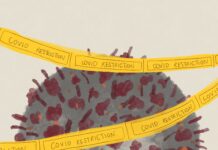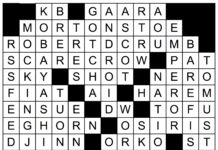U SPORTS, the national governing body of university sport in Canada, recently issued a Statement of Actions following the conclusion of Black History Month.
“The Statement of Actions are meant to reaffirm its commitment to the fight against systemic racism in North America,” U SPORTS said.
On its website, U SPORTS reported that at its June 2020 annual meeting, members were unanimous in denouncing all forms of racism.
U SPORTS also acknowledged the accuracy of an earlier CBC Sports investigation that has revealed the lack of diversity and representation in Canadian university sports leadership.
In July 2020, the CBC Sports investigation found that of nearly 400 key positions at all 56 Canadian universities that compete under U SPORTS, only about 10 per cent of the top jobs were held by BIPOC folks. These positions include the university’s athletic director, as well as the head coaches of football, men’s and women’s basketball, hockey, soccer and track — positions which all “command seven-figure salaries.”
According to CBC Sports, only one of the 56 universities had a non-white athletic director. “The Canadian university sports system also falls short to a degree when it comes to the representation of people of colour at upper levels,” CBC Sports concluded.
In response, a representative from U SPORTS said that as an organization, it is now “reviewing our own internal practices around diversity and inclusion to ensure we are enforcing and proudly representing our communities.”
In Feb. 2021, U SPORTS launched its first Black History Month promotional campaign highlighting the contributions of its student-athletes, coaches and alumni. The event was known as U SPORTS Conversations, a live virtual event that discussed matters concerning the Black community.
According to its website, other U SPORTS initiatives include renaming its Equity Committee to the Equity, Diversity and Inclusion (EDI) Committee, as well as expanding the EDI subcommittees to include both stakeholders and external experts to better represent BIPOC, women in sport, and LGBTQ+ communities.
U SPORTS also noted there are plans to launch a “Change Starts with U SPORTS t-shirt campaign that provides student-athletes, coaches, administrators and our community with an opportunity to raise funds to support EDI initiatives within university sport.”
“It’s time for change, and we know we need to do more. U SPORTS stands with the black community against police brutality and systematic racism. We commit to better engage with and represent the diverse Canadian university sport landscape #BlackLivesMatter,” U SPORTS tweeted on June 4, 2020.
Lori Campbell, director of the Waterloo Indigenous Student Centre at St. Paul’s University College, said the U SPORTS initiatives are good but more needs to be done. Campbell describes herself as an “elite athlete within the public school, college and university system” and says she played for the Cougar basketball team at the University of Regina in the early 1990’s, competed in track and field in the Canadian Western Summer Games and Saskatchewan Summer Games in the past and has also held a provincial high jump title.
“I do think this is a good starting point but that is what it is, a starting point. It indicates the acknowledgement that racism in university sport exists. This has been something that most fields of sport have refused to acknowledge. Sometimes sport tries to impose upon Black, Indigenous, People of Color, and Queer folk that the sport and skillset for the sport is all that we need to think about. This perpetuates statements like, ’I don’t see color’ or ’color doesn’t matter.’ What that does is negate and invalidate the very real experiences of racism that occur,” Campbell said. When we draw attention to racism through our public platform of sport we are often silenced. Think of Colin Kaepernick who took a knee during the National Anthem in support of Black Lives Matter and has never been able to play professional football since or Tommy Smith and John Carlos who did the Black Power Salute on the medal podium at the 1968 Mexico City Olympics. They were booed and both expelled from the games,” Campbell said.
Vershawn Young, a professor in the departments of Communication Arts and English Language and Literature and a member of the Black Faculty Collective at UW, is also watching the U SPORTS initiatives with interest.
“Yes, these initiatives do seem like a good effort. I would not say start because many of these things should have already been in place. While we are inclined to provide congratulations or acknowledgement of anti-racist efforts, we must at the same time instead acknowledge that U SPORTS is finally now recognizing its responsibility to ensure an environment free of anti-black sentiment and anti-black racism. So, yes, it’s a good start at finally acknowledging that these efforts are needed and finally putting the necessary actions and resources behind them so they work. But more efforts and sustained commitments to change are also needed,” Young said.
“All of the initiatives appear thoughtful and specific. They all, as a set of initiatives, work toward better equity, diversity, and inclusion. The one that stands out as particularly good is the “Change Starts with U SPORTS t-shirt campaign. This is particularly noteworthy because U SPORTS is setting the example that every person as an individual and every organization has the responsibility to act, encourage, and lead in change if anti-racism will become real,” Young added.
Campbell also particularly likes the “Change Starts with U SPORTS” t-shirt campaign initiative.“Anyone who knows me knows that I am a fan of t-shirts with a message. In fact, I often use a hashtag called #teachableTShirts. I think they can be effective in spreading a message as long as folks talk about what their t-shirt is about. It is one small way of getting a message more broadly out there,” Campbell explained.
“These efforts are only the beginning, and U SPORTS looks forward to continuing to showcase today’s BIPOC leaders by listening to their experiences, educating our network and supporting our Black teammates and colleagues as they empower the next generation,” U SPORTS noted on their website.
On March 11th, U SPORTS announced that it is hiring for the position of Director of Sport.
“As an employer, U SPORTS is committed to creating an inclusive and diverse work environment and is proud to be an equal opportunity employer. All qualified applicants will receive consideration for employment without regard to race, ancestry, place of origin, colour, ethnic origin, citizenship, creed, sex, sexual orientation, age, marital status, family status or disability,” U SPORTS said.
As an anti-racist activist, Young believes that the U SPORTS initiatives are a big deal.
“The significance of these efforts is that U SPORTS has made a public declaration and commitment to listen and incorporate the voices of Black and Brown stakeholders. That has not been the case in many organizations. That is what the word inclusion refers to in EDI, including those voices in all decision making efforts. So the big deal is that they are modelling inclusion,” Young said.
But both Young and Campbell agree that more work needs to be done going forward.
“But in general, both Canada and the USA can do better. They are not doing nearly enough yet. And Canada and USA, being so close in proximity and sharing in the sports arena (think of the NBA) could benefit both from friendly competition – who could be most equitable, diverse, and inclusive – but could better benefit by collaborating and stepping up their goals and efforts together,” Young explained.
Campbell thinks that a logical next step would be to include representative stakeholders and external experts on all committees and subcommittees.
“BIPOC and Queer folk need to be at all decision-making and resource-allocation tables and not just those ones where issues are seen to directly affect them,” Campbell noted.
“As a starting point, these are good initiatives. But if they only stand alone, without a metric to indicate impact and outcomes, they just become checkboxes. Addressing racism in sport has been overlooked for far too long. Real change takes leadership, political will, and desire to change,” Campbell added.
Both Campbell and Young said they will be watching to see if U SPORTS is serious about fighting racism, and whether its initiatives will translate into meaningful action.
“Black, Brown, People of Color and Queer folk do not get to walk away from their identities just because they walk into a system of higher education or onto a sports playing field… Trust their experiences, take steps to learn how to lead change, and then make change happen. If it isn’t uncomfortable then you are likely just holding up the status quo,” Campbell said.






























